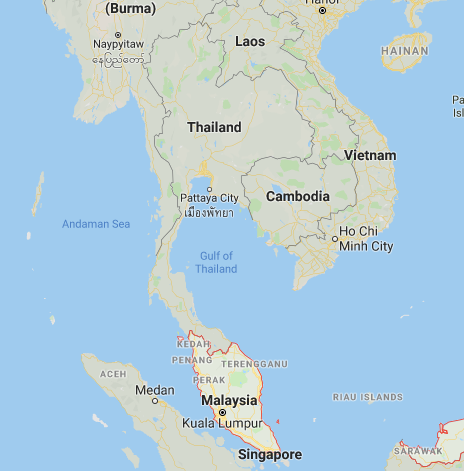This is the second in a series of articles offering alternate options to manufacturing/sourcing from China for your supply chain. In this article we feature Malaysia. Click here to read our first article with information about Vietnam.
We’re working with clients who are carefully considering their supply chain as it relates to long-term sourcing, production and shipping. We know regular news announcements from Washington D.C. associated with the trade war make it difficult to plan budgets, costing and more. The bottom line: there are alternatives to production and shipping. Even the Chinese are looking at options.
According to the Nikkei Asian Review, “Since last June, 33 listed companies have informed China’s two stock exchanges of their plans to set up or expand production abroad…” Malaysia is among the top countries cited in this article for production expansion. The country is geographically well positioned is stable offers favorable pricing, resources and infrastructure. If you’re interested in learning more after reading this article, contact me directly to set up an introduction to our partner in Malaysia.
Malaysia’s proximity, ports and advantages
Malaysia occupies the fat part of the peninsula that connects Thailand and Singapore as well as the northern part of the island of Borneo, which it shares with Indonesia. The Capital Kuala Lumpur is actually only a four- to five-hour drive to the island country of Singapore.
- Peninsular Malaysia is the transportation hub with Penang and Port Klang as the major ports.
- Borneo Island requires transshipping on barges.
- Specific port and routing information is available via Cargo Services.
The country has had decades of industrial growth and political stability. It’s the 20th largest export economy in the world. Total exports: are $184 billion with imports at $156 billion for the most recent period. Top export destinations are Singapore, China, the United States, Japan and Thailand.
Top exports include refined and crude petroleum, palm and coconut oil along with aluminum. The country is known for electronic production for export including integrated circuits, computers, telephones and oscilloscopes. The electrical and electronics sector forms a significant part of Malaysia’s economy. Exports from this sector account for about 38% of Malaysia’s total exports and were equivalent to about 26% of the country’s GDP in 2018. Virtually all of Malaysia’s trade surplus is being generated from the electrical and electronics sector, while the sector also accounts for almost a quarter of manufacturing output (GDP), employment and investment.
Why consider Malaysia?
- Price. This is the top reason. Labor is less than China or other south East Asia countries with similar transportation costs.
- Stablity. An ING economic forecast published this month says Malaysia is an economy “that surpasses expectations.” The country’s GDP growth improved to 4.9% year-on-year in 2Q19 from 4.5% thanks to a pick-up in exports and manufacturing growth.
- Tariffs. The country doesn’t fall under the current economic tariffs playing out between China and the United States. According to an article published this month by The Edge Financial Daily: “Fortunately for Malaysia, the economy’s exposure to global trade is less than Singapore. While there is no doubt that a prolonged US-China trade war will affect growth globally, economists believe Malaysia would be less affected than Singapore.”
- Resources. The recent Nikkei article cites Rajiv Biswas, a Singapore-based economist at IHS Markit: “A skilled, well-educated workforce, good infrastructure and a strong network of free trade agreements, including being part of the ASEAN Free Trade Area and EU-Vietnam FTA.”
- Infrastructure. The East Coast Rail Link (ECRL) project is back on track in a significant sentiment booster for foreign investors in Malaysia. After being suspended for a year, China and Malaysia have reportedly resumed construction of the 640km rail line forming a part of China’s Belt-and-Road initiative.
While there are many positives to considering Malaysia for a future partner, there are a few things to keep in mind. So far there is no direct call for ships from Penang or Port Klang to the United States. All trans-ship in larger Asian ports (Singapore, Hong Kong, Shanghai, Seoul).
Quality and lead time may vary. Some vendors are unproven. We recommend doing research and finding partners to help navigate the business and political landscape.
Meet our partner
Cargo Services partner servicing Malaysia is Seamaster Logistics with an office in Selangor, Malaysia. In 2018, the company ranked in the top 10 in total trans-pacific (Malaysia to the United States) container volume. The team is customer service focused while offering competitive prices. If you’d like an introduction and/or tours of the port and manufacturing facilities, reply to this email or contact me directly to discuss next steps.
